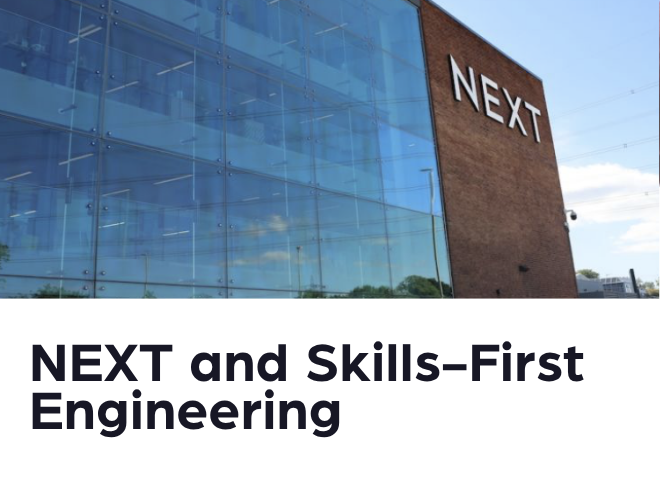If you’re transitioning out of the armed forces and wondering where to place your next career bet, here’s a sector most people are ignoring, but absolutely shouldn’t: Infrastructure.
Not the shiniest title on a job board. But behind every AI breakthrough, Netflix binge, and banking transaction, there’s a physical system holding it all up: data centres, fibre networks, substations, cooling towers. And that stack of cables, concrete and cooling? It’s stretched thin.
As AI accelerates, infrastructure is where the real growth and the real pressure are building. And for ex-military candidates used to complex kit, critical operations, and getting the job done under stress, it’s a perfect matchWhat Is the Infrastructure Industry (And Why Should You Care)?
Infrastructure is the physical backbone of the modern world. Think:
- Data centres
- Power grids
- Fibre networks
- Telecoms infrastructure
- Control systems and cooling systems
- Field engineering across utilities, energy, and networking
If it powers tech, carries signals, or keeps operations stable, it counts. These systems run 24/7 and mustn’t fail. When they do, the cost isn’t just financial, it’s operational chaos.
This is not about tinkering in a safe, clean office. It’s about keeping high-risk, high-impact systems functioning. And it’s where demand is exploding.
The Growth Curve Is Steep. The Workforce Pipeline Is Broken.
The UK’s data centre market is projected to grow 6.5% year-on-year, surpassing £7 billion by 2027. Meanwhile, 5G networks and energy grid upgrades are accelerating across both urban and rural areas. Even water and waste utilities are scrambling to digitise and fortify their networks.
The catch? The skilled workforce isn’t keeping up. Many of the engineers, electricians, and systems technicians who built this infrastructure are nearing retirement. Training pipelines can’t replace them fast enough. And the roles? They’re don’t seem to get any air time.
This leaves a massive capability gap, especially in roles that demand responsibility, calm under pressure, and mission focus. In other words: the exact qualities armed forces leavers bring in spades.
Why You Fit Infrastructure
Let’s skip the hero speech. This isn’t about medals. It’s about capability.
Infrastructure is built on:
- Precision
- Discipline
- Operational thinking
- Pressure-tested resilience
- Safety-critical decision making
Sound familiar?
Whether you were a signaller, engineer, logistician or systems tech, you’ve likely already worked with high-voltage systems, network comms, mechanical maintenance, or operational control equipment.
You’ve worked shifts. Handled kit that costs more than most people’s mortgages. Run fault diagnosis under pressure. You’re already fluent in procedures, systems, and mission risk. And while civvies panic when the printer breaks, you’ve kept platforms running mid-crisis.
That’s the difference these companies need. And they’re actively looking for it, they just don’t always know where to find it.
What Job Roles Are Out There?
This sector isn’t a one-trick pony. Veterans are stepping into all kinds of infrastructure roles across data centres, energy, and telecoms. Here’s a snapshot:
Data Centres
- Critical Systems Technicians
- Electrical & Mechanical Maintenance Engineers
- Shift Supervisors
- Facility Operations Managers
Energy Infrastructure
- HV Engineers
- Grid Project Managers
- Maintenance Planners
- Field Service Technicians
Telecoms & Networks
- Fibre Installers & Infrastructure Build Leads
- Network Operations Centre (NOC) Technicians
- Field Engineers
Network Planners
You don’t need to code. You need to think clearly, follow process, and keep things online. You’re not supporting the mission, you’re enabling it.
What’s in It for You?
Aside from job satisfaction, a clear mission, and tangible impact? Let’s talk pay and progression.
- Field engineers and junior infrastructure techs often start between £30–40k.
- Critical systems engineers can earn £60k+ with shift work and experience.
Progression is fast for people who show up, lead calmly, and take responsibility.
In these roles, veterans stand out. You're often the only one on-site with operational leadership experience. Promotions don’t require networking over soy flat whites, they require reliability under pressure.
Why Most Veterans Miss This Path
The problem isn’t you. It’s visibility. The civilian job market tends to push veterans into the usual buckets:
- Security
- Logistics
- Project management
Infrastructure flies under the radar. The roles sound technical and unfamiliar. But the day-to-day work? It mirrors much of what you’ve already done.
These companies don’t need motivational posters or polished pitch decks. They need people who’ll show up, get stuck in, and keep the system running. No drama. No excuses. Just delivery.
How to Get Started
Here’s how to step in:
- Get clued up.
Start learning how infrastructure systems actually work. Research data centres, energy grids, and how fibre is rolled out across the UK. - Translate your CV.
Civilian hiring managers don’t speak in MOD90 acronyms. Spell it out. If you maintained high-risk systems, say so. If you led a team through a power-down, make that clear. - Start showing up.
Plenty of these companies are crying out for people like you. But they need to see you. Use platforms like Redeployable to match with employers who already understand the armed forces skill set.
Key Takeaways
- AI doesn’t run on magic. It runs on infrastructure. And that infrastructure needs hands-on, capable people to build and maintain it.
- The skills gap is real. 20% of the UK’s energy infrastructure workforce is leaving in the next five years. Other sectors aren’t far behind.
- Veterans are the answer. Calm under pressure, operational thinking, and discipline are in short supply. You’ve already got them.
- These roles don’t need a degree. They need good judgment, solid process, and someone who won’t melt when the system goes offline.
- Progression is fast. Veterans rise quickly in these industries. Your background sets you apart.
Bottom Line?
This isn’t just a job. It’s a second mission.
If you’re serious about impact, career stability, and stepping into a role that genuinely needs you, this is it. Infrastructure isn’t the loudest industry, but it’s one of the most important. And right now, it’s screaming for talent.
[CALLOUT]






.avif)


